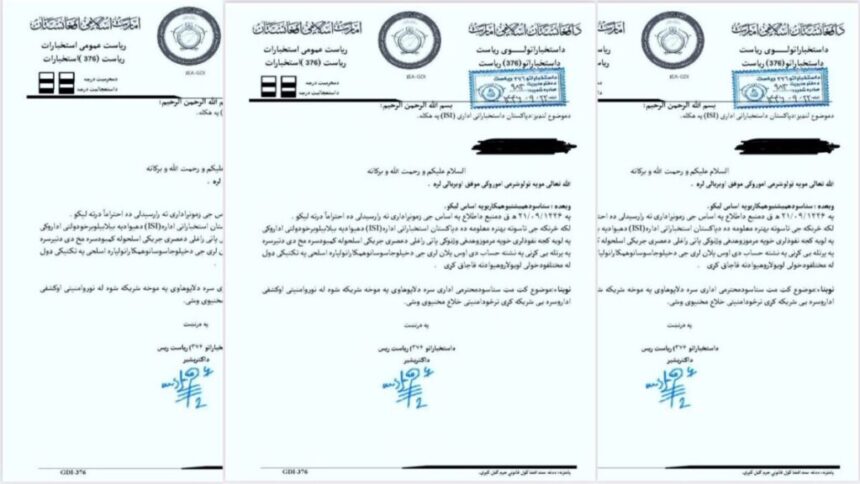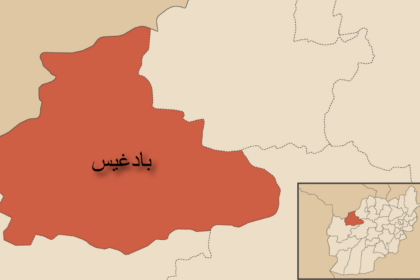RASC News Agency: The Taliban’s Directorate 376 (Counterintelligence Department) has officially acknowledged the extensive infiltration of Pakistan’s Inter-Services Intelligence (ISI) within Afghanistan’s government structures. This revelation comes through a classified letter, recently leaked on social media, in which the Taliban’s intelligence arm warns of ISI’s growing influence within key state institutions and calls for intensified oversight and countermeasures. Dated Friday, March 22, the letter cautions various Taliban agencies that ISI operatives have entrenched themselves within government bodies and are actively expanding their network. It further reveals that despite numerous attempts at executing covert assassinations, ISI-backed elements have thus far been unsuccessful due to a shortage of advanced guerrilla weaponry. However, the document warns that Pakistan’s intelligence agency is now orchestrating efforts to smuggle sophisticated arms into Afghanistan through its operatives.
In response, the Counterintelligence Directorate has instructed all Taliban departments to address this “security breach” with urgency and implement stringent countermeasures against foreign espionage. The letter, reportedly signed in the handwriting of Dr. Bashir, the head of the directorate, underscores the necessity of eliminating external interference in Afghanistan’s security and governance. This disclosure has triggered intense debate in both political and security circles. Rahmatullah Nabil, former chief of Afghanistan’s National Directorate of Security (NDS), was the first to circulate the document online, interpreting it as official confirmation of ISI’s entrenched presence within the Taliban’s governing apparatus.
Analysts suggest that the Taliban’s growing anxiety over ISI’s influence signals a lack of complete internal control, raising concerns about its ability to govern independently. Moreover, the revelation could have profound implications for the Taliban’s diplomatic strategy, particularly in shaping its future relations with Pakistan and other regional powers. Thus far, the Taliban has issued no official response regarding the leaked document. However, concerns over foreign intelligence infiltration within its administration at a time when the group is striving to consolidate power could further complicate its efforts to establish a stable regime.
The Taliban’s emphasis on countering foreign influence within state institutions underscores its broader struggle to assert sovereignty while navigating the intricate geopolitical and security challenges posed by external actors.






